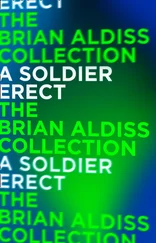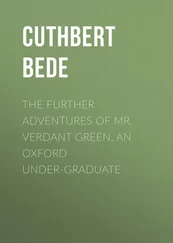"Yes."
Knowing what I was up to, Maître Raymond Hubert asked the court to free Inspector Mazillier from his professional secrecy, otherwise he would not be able to reply.
The president: "By its discretionary powers, the court releases Inspector Mazillier from his professional secrecy, and requires him, in the interests of truth and justice, to answer the question the defendant is about to put to him."
"Mazillier, name one single man in France, the colonies or abroad whom you have arrested because of my information."
"I cannot reply."
"You're a liar, Inspector! You can't reply because there's never been one!"
"Charrière, moderate your language," said the president.
"Monsieur le Président, I'm defending two things here, my life and my honor."
But the incident went no further. Mazillier withdrew.
And the other witnesses, how they came rolling up! All cut from the same cloth, all the handiwork of the pigs at 36, quai des Orfèvres, Paris.
And your last explanation, Papi, don't you remember that? The last and the most logical of them all. I can still hear it. "Gentlemen, play it straight with me and listen to what I have to say: It is a fact that Lepetit got only one bullet; he was shot once only; he remained on his feet, he walked off alive, he was allowed to take a taxi. That means the man who shot him did not want to kill him; otherwise he'd have fired four, five, six shots the way we do in the underworld. Anyone who knows Montmartre knows that. So suppose it was me, and suppose I confess and say, 'Gentlemen, this man, for such-and-such a reason, right or wrong, had a row with me or accused me of something; he put his hand in his pocket, and as he was an underworld sort like me, I was afraid, so I fired just one shot to defend myself.' If I said that, at the same time I'd be proving I didn't mean to kill him because he went off on his own feet and alive. Then I would end up by saying to you, 'Since an inspector says I'm very useful to the police, I ask you to accept my confession and to treat the business as unintentional homicide.'"
The court listened in silence: thoughtful, it seemed to me. I went on, "Ten times, a hundred times, both Maître Raymond Hubert and Maître Beffey have asked, 'Was it you who fired? If it was you, say so. You'll get five years at the outside, maybe even less. You'll still be very young when you come out.' But, gentlemen of the court and gentlemen of the jury, I can't take that path, not even to save myself from the guillotine or penal servitude, _because I'm innocent and I've been framed by the police_."
All this in that sunny courtroom where they let me explain things properly. Poor credulous kid, couldn't you see it was too good to last?
For this was the point where Mayzaud quickly thought up a gimmick. Afraid his fifteen months of effort might be reduced to nothing, he did what was forbidden. During a pause in the hearing he came to see me in the room where I was watched by the _Gardes républicains_, and which he had no right to enter. He came up to me and he had the nerve to say, "Why don't you say it was Corsican Roger?"
Completely taken aback, I said, "But I don't know any Corsican Roger."
He talked for a moment, walked quickly out, went to the prosecuting counsel and said to him, "Papillon's just confessed to me that it was Corsican Roger."
And now what this accursed Mayzaud wanted to happen did happen. The trial was stopped, in spite of my protests. Yet I still fought on and I said, "For the last eighteen months Inspector Mayzaud has been saying there's only one Papillon in this case and that it's me; Inspector Mayzaud says there's no doubt that I am Lepetit's killer; Inspector Mayzaud says he's brought honest, unanswerable witnesses who prove my guilt without the shadow of a doubt. Since the police have found all the necessary witnesses and proofs against me, why is their whole framework collapsing? So isn't this whole mass of evidence a pack of lies? And is just one new name tossed into the arena enough for it to seem uncertain anymore that Papillon is guilty? Since you say you've got all the proofs of my guilt, is it merely on the existence of some imaginary Corsican Roger that the trial is to be stopped and started all over again? Just because of some imaginary Corsican Roger, thought up by Mayzaud if you believe me, or thought up by me, if you trust him once again? It's impossible: I demand that the proceedings should go on: I demand to be judged. I beg it of you, gentlemen of the jury and Monsieur le Président!"
You'd won, Papi, you'd very nearly won; it was the honesty of the prosecuting counsel that made you lose. Because this man, Cassagnau, stood up and said, "Gentlemen of the jury, gentlemen of the court, I cannot proceed -.. I no longer know -. – the incident must be expunged.. – I ask the court to postpone the trial and order a further inquiry."
Just that, Papi, just those three phrases of Maître Cassagnau prove that you were condemned on a rotten charge. Because if this upright lawyer had had something clear, straight and unanswerable in his hands, he would not have said, "Stop the trial; I can no longer proceed."
He would have said, "Just one more of Charrière's inventions: the defendant wants to lead us astray with his Corsican Roger. We do not believe a word of it, gentlemen; here I have everything that is required to prove Charrière guilty, and I shall not fail to do so."
But he did not say that, and why not? Because in his conscience he did not fully believe in his brief, and because he must have begun asking himself questions about the honesty of the pigs who had put it together.
The trial was stopped, and they ordered a supplementary inquiry, _the second in this case_.
One of the newspapers said, "Such a lack of conviction is most unusual."
Of course the supplementary inquiry provided _no new facts whatsoever_. Corsican Roger? Of course he was never found. During this further inquiry the _Gardes republicains_ played it straight; when they were asked about the incident in July they gave evidence against Mayzaud. In any case, how could a man who proclaimed his innocence, and proved it logically, and felt the court favorably inclined toward him, how could this man throw the whole thing up and suddenly say, "I was there but I wasn't the one who fired; it was Corsican Roger?"
And what about the other trial, Papi? The last, the decisive hearing: there where the dry guillotine began to work, there where at twenty-five your youth and your faith in life received the great hammer blow of a life sentence; where Mayzaud, sure of himself once more, apologized to the prosecuting counsel and admitted having made a mistake in July; where you shouted at him, "I'll rip off your mask, Mayzaud!"… do you really want to hive through all that again?
Do you really want to see that courtroom again, and that gray, unhappy day? How many times do I have to tell you that thirtysix years have gone by since then? Do you want to feel that savage blow on the jaw again, the swipe that forced you to struggle for thirty-six years to be able to sit on this bench in the Boulevard de Clichy, in your Montmartre? Yes, indeed; I want to go down those first steps of the ladder that took me to the very bottom of the pit of human degradation, I want to go down them one by one again, so as to have a better notion of the road I traveled.
How different it was when I entered the second courtroom, a good-looking boy in a perfectly cut double-breasted suit. In the first place the sky was so low and rainy they had to light the chandeliers. This time everything was draped in red, blood-red. Carpets, hangings, judges' robes-as if they had all been dipped in the basket that holds the heads of guillotined men. This time the judges were not about to go off for their holidays; they had just returned from them; it was not the same as July.
Читать дальше
Конец ознакомительного отрывка
Купить книгу











